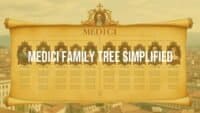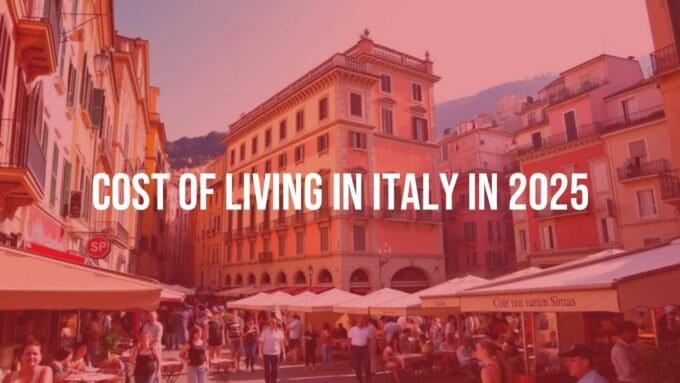Starting the search for an apartment in Italy, whether you’re a foreigner looking to live by the Mediterranean or an Italian wanting a new place, can feel overwhelming at first. Is it really as hard as they say? While the Italian rental market does have its own special rules and ways of working, it’s definitely possible. If you know what to expect and plan ahead, you can find your ideal home in Italy. This guide gives you clear and useful tips to make the process easier and even enjoyable, so you can settle into your own casa in Italy.
You’ll need to learn about local traditions, understand different rental contracts, and know how to search for available rentals both online and offline. Rentals, especially in big cities, are often taken very quickly-sometimes within just 24 hours. So, it’s important to be ready, act fast, and know the basics. The next sections explain what to do at each step to help you get your new Italian home.
Italian Apartment Hunting Tips for Expats and Locals
How Is Apartment Hunting Different in Italy?
Looking for an apartment in Italy is quite different from searching in cities like London or New York. Many Italian apartments, especially in cities, are older. These buildings are full of history, but may have issues like poor insulation, old plumbing, or outdated electrical wiring. When you look at an older place, check if it’s been updated or recently renovated.

Italy also has a high rate of home ownership-about 75% of people own their homes, so fewer people rent. This means there are fewer rentals available but also some good news: rents in Italy have gone up less than in other European countries. Since 2015, rents have only risen by 7%, while other places like Austria and the Netherlands have seen much bigger rises. This means renting might feel more stable and affordable in Italy.
Is It Better to Rent or Buy?
Deciding to rent or buy comes down to how long you plan to stay and your budget. Renting gives flexibility, so you can try different cities or regions before making a bigger commitment. This is helpful for people new to Italy or those who want to experience various lifestyles. Tenant protection is strong in Italy. Long-term leases usually last three years or more, and landlords can’t raise the rent during the contract. It’s also hard for a landlord to evict a tenant, which gives renters confidence.
Buying a home is another option, and while prices can be lower than nearby countries, cities like Milan, Rome, and Venice are still costly. Buying also brings extra expenses for taxes, agent fees, and notary costs. If you’re not ready to settle down or want to keep your options open, renting is a smart start, plus it’s needed for setting up things like utilities and healthcare.
How Renting Works in Italy
Types of Properties for Rent
Italy offers many types of rentals: small studios (monolocale), two-room apartments (bilocale), three- or four-room apartments (trilocale or quadrilocale), and bigger homes or villas in the outskirts. Properties may be:
- Unfurnished: Completely empty, sometimes even without appliances or lights.
- Partially furnished: Includes basics like a bathroom, oven, and washing machine.
- Fully furnished: Ready to live in, with furniture and kitchen equipment-most common for students and professionals.
Also, be careful when counting rooms: real estate agents may count kitchens or storage as a “room.” Always ask for a clear list of what’s included.

Main Types of Lease Agreements
The two main long-term contracts are:
| Type | Initial Term | Renewal |
|---|---|---|
| 4+4 | 4 years | Automatically extends for 4 more |
| 3+2 | 3 years | Can renew for 2 years |
These are good for getting residency and doing official paperwork. There are also short contracts (from 1 to 18 months) for students, workers on short assignments, or people doing internships. Landlords or agents must register your rental contract with the city within 30 days and give you a stamped copy, which you’ll need for many things in Italy.
Student Accommodation and Special Contracts
University students in Italy often get dorms, usually for the first year, near the campus. Dorm contracts last up to 11 months and usually close in summer. After that, students often rent rooms in shared flats. When looking at student rentals, check how far you’ll be from campus, the size of the place, and if utilities or internet are included in the rent.
There are special student contracts, ranging from six months to three years, which can be ended with less notice than standard rentals. Students should always read the contract and make sure it explains move-in and move-out steps and who pays the bills.
Where to Find an Apartment in Italy
Popular Cities to Rent In
Each Italian city has its own “feel.” Rome is the most expensive city after Milan but has many options for different lifestyles. Family-friendly areas include Aventino and Monteverde, which is quieter but may require a car.
Milan has the highest rents in the country, especially in the center (Zone 1), but prices drop further out except for places like Zone 4. Families often live in towns like Monza for more space with easy access to Milan. Florence, Bologna, and Perugia (especially where there are lots of universities) also see a lot of demand.
Best Ways to Search: Websites and Agencies
Most people start looking for apartments with popular websites like:
- Idealista
- Immobiliare
- Casa.it
- Subito
- MioAffitto
- affitto.it
- Spotahome
- HousingAnywhere
- Flatio
On these websites, you can filter by city, price, and whether the apartment is furnished. Agencies are another good source. They handle legal details and help if you don’t speak much Italian. Be ready to pay agency fees (usually one to two months’ rent plus tax). Sometimes you can rent directly from an owner to skip these costs, but agencies can be very helpful if you’re new.

Word-of-Mouth and Local Tips
Talking to people is still useful in Italy. Facebook groups or online forums for expats often have posts about available rooms and apartments, sometimes directly from owners-saving you agency fees. You can also look for “affittasi” signs on buildings, especially in smaller towns. Walking around the neighborhoods you’re interested in can help you spot these offers.
Watch Out for Scams
Be careful with online listings. If something sounds too good to be true, it probably is. Never pay any money before seeing the apartment in person and signing a contract. Don’t trust landlords or agents who refuse to show the place or who want cash up front, especially through unusual payment methods. Always make sure the person you deal with truly has the right to rent the property.
Documents Needed for Renting in Italy
Which Papers Do You Need?
- Valid passport or ID card for all tenants
- For non-EU citizens: valid visa or residency permit
- Proof of income (job contract, pay slips, or recent tax return) or savings
If you don’t have a job, you may need to show you have enough money in your bank account or have someone co-sign as a guarantor (a responsible person who promises to pay if you can’t).
Codice Fiscale and Other Required Steps
You’ll need a Codice Fiscale (Italy’s tax number) for almost everything-renting, setting up utilities, or signing up for healthcare. You can get one from the Italian tax office after you arrive or sometimes from your local Italian consulate before you go. Once you sign your contract, the landlord or agent will register it with the local council and give you a stamped copy. You’ll use this as proof of your address.
Rental Prices, Deposits, and Fees
How Much Does It Cost?
Rental prices change a lot depending on the city and property type. Milan is usually the most expensive (over €20/m²), followed by Rome, Florence, and Venice. Smaller towns are much cheaper, sometimes starting as low as €300 per month, while apartments in big cities can easily go above €1,500 per month.
| City | Average Price per m² (2022) |
|---|---|
| Milan | €20+ |
| Rome | ~€16 |
| Florence | Varies |
| Perugia (student town) | Lower/Medium |
Smaller cities usually mean cheaper and slower markets. In cities like Genoa or Turin, apartments can rent quickly, while in Naples there’s less rush.
Security Deposits
Most landlords want a deposit equal to two or three months’ rent, with three months being normal in cities like Milan. You get this money back when you leave, minus any damage or unpaid bills. Make sure the contract says how and when you’ll get your deposit returned.
Agency Fees and Extra Costs
If you use a real estate agency, you’ll usually pay a fee equal to one month’s rent plus 22% VAT. This fee is paid by the tenant. If you rent in a building with shared spaces, there’s also a monthly charge called spese condominiali (usually €50-200), which covers cleaning, elevators, and maintenance. Always ask about these fees before you agree to rent.
Utilities
Normally, you’ll pay for your own utilities: electricity (luce), gas (gas), and water (acqua). For long-term rentals, you must transfer these into your own name (voltura) or set up new accounts. Waste collection fees (TARI), based on the property size and number of people living there, are also paid by the tenant. Tenants also handle regular upkeep, like replacing bulbs or cleaning, while landlords take care of big repairs.
Before You Sign the Rental Contract
How to Read Your Contract
Read the rental agreement carefully. If you don’t understand it, ask for help from a friend, lawyer, or agent who speaks Italian. Focus on the rent, deposit, responsibilities, and anything about who pays for repairs or building fees. Make sure you know what terms like “bilocale,” “furnished,” and “unfurnished” really mean in each case. Check if utilities are included or if you must pay them yourself.
Contract Length and Ending the Lease
Check how long the contract lasts and how to end it. In most cases, you must give at least three months’ written notice before you leave. To break a fixed contract early, you need a good reason (“giusta causa“) and must give formal written notice (usually six months in advance). Make sure your contract explains all this in simple terms before signing.
Special Terms That Might Affect You
Some contracts include a yearly rent adjustment (adeguamento annuale). This means the landlord can raise the rent every year, following official inflation figures. Ask if this clause is present and find out the maximum amount of the increase. Check for a pet policy-some contracts have a “no pets” rule by default, but it can sometimes be discussed with the landlord. Look for details explaining who pays for what maintenance and how condominium fees are divided.
Inspecting the Apartment
Questions to Ask the Landlord or Agent
- What is the energy rating (APE certificate) of the apartment?
- Is the electrical wiring up to date?
- How much were average utilities for the previous tenants?
- What type of internet is available?
- What do condominium fees cover?
- What happens if there are maintenance emergencies?

Amenities to Check
- Heating (test if it works and check if it is modern)
- Air conditioning (is it installed and working?)
- Kitchen appliances (are they included and functional?)
- Water pressure, especially in the shower
- Storage space
- Elevator (if you need one), especially in older buildings
Common Problems in Older Buildings
Old buildings may have poor insulation (hot in summer, cold in winter, high heating or cooling bills), bad wiring or plumbing (low water pressure, frequent power cuts if multiple appliances are on), or floors that are cold in winter. Look for signs of humidity, like mold or a damp smell. Central locations can also be noisy, especially at night, so check noise levels if this is important to you.
Little-Known Challenges and Solutions
Language and Cultural Issues
Many contracts, bills, and phone calls are only in Italian. Learning some basic Italian, especially terms for housing and utilities, helps a lot. Bringing a friend or translator to meetings can make things easier. Most landlords use WhatsApp for quick chats, so being able to message in Italian is handy. Building a friendly relationship with your landlord can be helpful, as many Italians prefer to trust someone they know.
Avoiding Scams
- Never pay before seeing a property or meeting the landlord
- If a deal is much cheaper than other offers, be careful-it might be fake
- Only use official payment methods (not cash or unfamiliar apps without a receipt)
- Always get a registered, signed contract
- If something feels suspicious, ask for help in online expat groups or from a professional
Moving In and Out: Helpful Steps
What to Record
- At move-in: Be present for the inventory, check for damages, take photos or videos of every room, and sign the report with the landlord.
- At move-out: Give notice (according to the contract), leave the apartment clean, be present for the final check, and take new photos or videos.
This record will help if there are questions about your deposit later. The landlord usually has two months to return your deposit, after any deductions for damage beyond normal use.
Setting Up Essentials
- Transfer or set up new utility contracts (water, gas, electricity) as soon as you move in. You’ll need your Codice Fiscale and contract details.
- For internet, check which providers operate in your building. Old buildings may have slow connections.
- Submit meter readings for gas and electricity to avoid estimated bills.
- Pay the TARI waste fee each year.
- Keep all utility receipts and records.
Final Tips for Apartment Hunters in Italy
Ways to Save Time and Money
- If you find a place that fits your needs, act quickly-it might be gone fast.
- Have all your documents (like Codice Fiscale and proof of income) ready before going to viewings.
- If you’re moving from another country, try to visit Italy just to see apartments in person. This can help you better judge areas and avoid surprises.
- Don’t hesitate to ask for a discount or better terms, especially if you deal directly with the landlord.
- To save on heating in winter, many Italians use electric blankets (“caldasogno”) to avoid turning up the heat too much.
Resources and Support Networks
- Property portals such as Idealista and Immobiliare help find listings and compare prices.
- SUNIA (the renters’ association) can help with advice about tenant rights and legal issues.
- Expat groups, forums, and social media communities offer practical tips and important warnings about local agents and neighborhoods.
Always double-check legal information with official sources, but ask others for practical help as well. The more prepared you are, the smoother your move to Italy will be.













Leave a comment